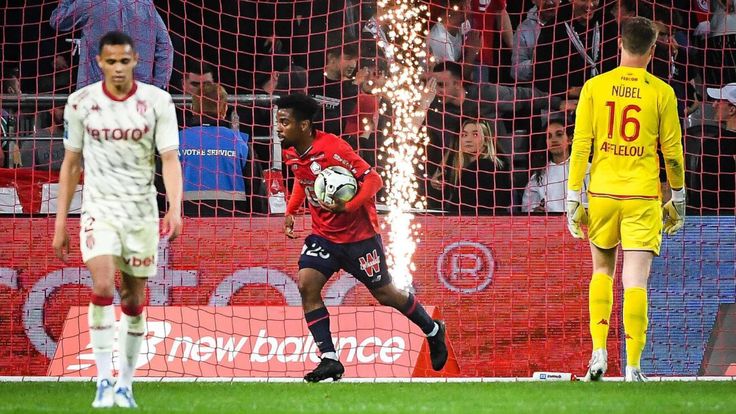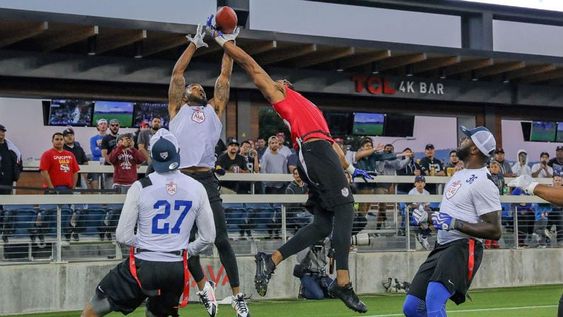What is a PBU in Football
In the realm of football, understanding key terminologies enhances one’s appreciation of the game. Pass Break-Up (PBU) is a crucial stat that often goes unnoticed by casual viewers but holds significant importance in evaluating defensive prowess. PBUs occur when a defensive player disrupts a pass attempt by the offense, preventing completion and potentially leading to turnovers. This article delves deep into what constitutes a PBU, its significance, and how it influences gameplay strategies.
What Defines a PBU?
A Pass Break-Up occurs when a defensive player successfully interrupts a pass intended for an offensive player, thereby preventing a completed reception. This defensive action can take various forms, including tipping the ball, deflecting it away, or physically intercepting it mid-air. PBUs showcase a defender’s agility, timing, and spatial awareness on the field. Also, read about What is Flag Football
Importance of PBUs in Football
Enhancing Defensive Effectiveness
PBUs serve as pivotal moments in a football game, influencing the momentum and outcome significantly. Each successful PBU denies the offense crucial yardage gains and potential scoring opportunities, thereby bolstering the defense’s efficacy.
Statistical Evaluation
In statistical analyses, PBUs contribute to a player’s overall performance metrics, alongside interceptions, tackles, and sacks. Coaches and analysts often use PBUs to gauge defensive backfield efficiency and the effectiveness of defensive schemes against passing plays.
Techniques for Executing PBUs
Timing and Positioning
Successful PBUs require precise timing and strategic positioning. Defensive backs must anticipate the quarterback’s pass trajectory while maintaining coverage on intended receivers. This strategic approach minimizes the offensive team’s chances of completing successful passes downfield.
Physical Techniques
Defensive players employ various physical techniques to disrupt passes effectively. These include swatting at the ball, diving to intercept mid-air, or leveraging body positioning to block the receiver’s line of sight. Such techniques demand athleticism, agility, and quick decision-making under pressure. Discover more information dynamichub.ca

Role of PBUs in Game Strategy
Strategic Implications
Coaches integrate PBUs into defensive strategies to neutralize high-percentage passing plays and limit opposing team scoring opportunities. By emphasizing PBU proficiency, coaches aim to strengthen defensive resilience and create turnovers that shift game momentum.
Psychological Impact
Beyond statistical benefits, PBUs exert psychological pressure on opposing offenses. Consistent PBU execution demoralizes quarterbacks and receivers, prompting them to second-guess pass execution and target selection.
Conclusion
In conclusion, Pass Break-Ups (PBUs) represent pivotal defensive actions in football, showcasing athleticism, strategy, and critical thinking under pressure. Understanding the intricacies of PBUs enriches one’s appreciation of defensive gameplay dynamics and highlights their impact on game outcomes.
FAQs
1. What exactly is a Pass Break-Up (PBU)?
A Pass Break-Up occurs when a defensive player successfully interrupts a pass intended for an offensive player, preventing it from being completed. This defensive action can involve tipping the ball, deflecting it away, or intercepting it mid-air, showcasing the defender’s skill and timing.
2. How do PBUs contribute to a team’s defensive strategy?
PBUs are crucial in disrupting the rhythm of opposing offenses. By denying completed passes, defenders can prevent yardage gains and potential scoring opportunities, thereby strengthening the defense’s overall effectiveness.
3. What role do PBUs play in statistical evaluation of players?
In statistical analysis, PBUs are significant metrics alongside interceptions, tackles, and sacks. They provide insights into a player’s ability to defend against passing plays and contribute to evaluating defensive backfield efficiency.
4. What are some key techniques used to execute PBUs?
Successful PBUs require precise timing and strategic positioning. Defensive players must anticipate the pass trajectory, maintain coverage on receivers, and use physical techniques such as swatting the ball, intercepting mid-air, or disrupting the receiver’s line of sight.
5. How do PBUs impact game momentum and psychological pressure?
Beyond statistical benefits, PBUs can shift game momentum by creating turnovers and demoralizing opposing quarterbacks and receivers. Consistent execution of PBUs forces offenses to rethink their passing strategies and target selections, influencing the game’s psychological dynamics.



